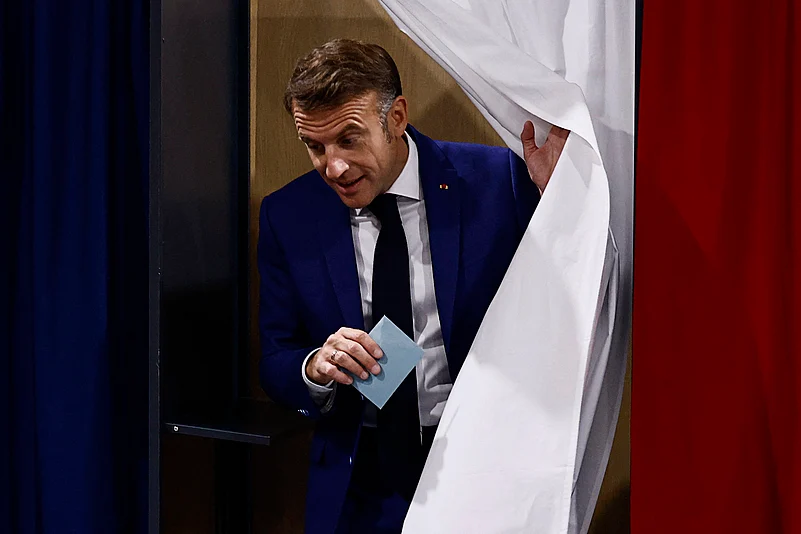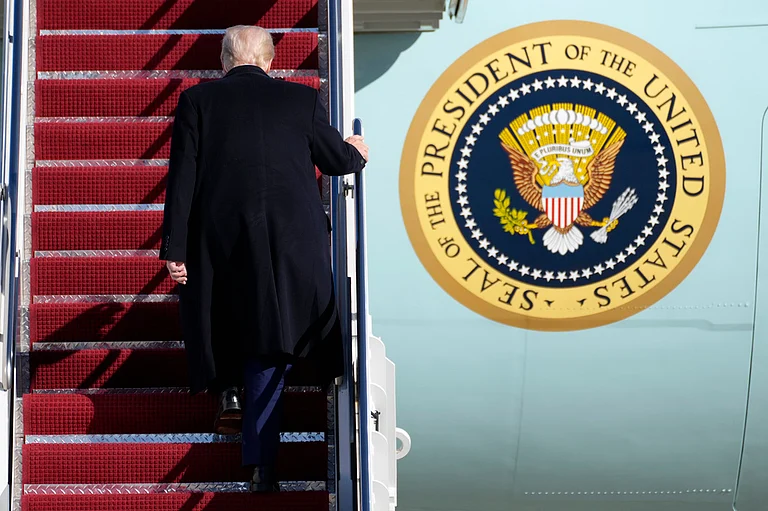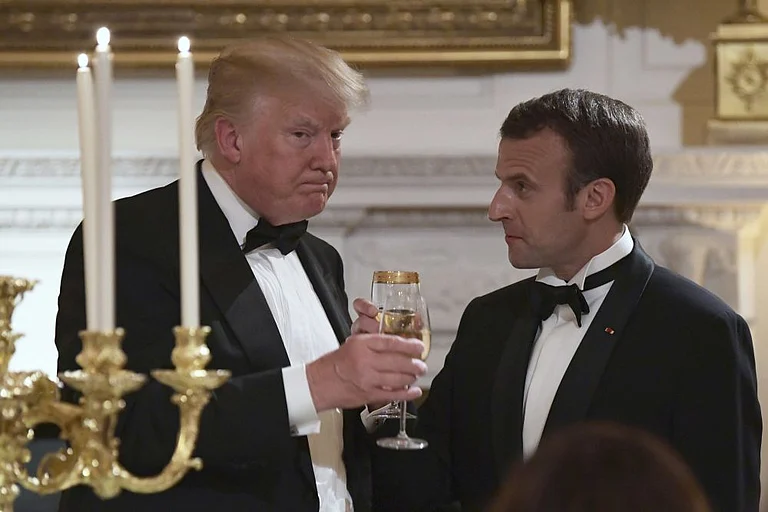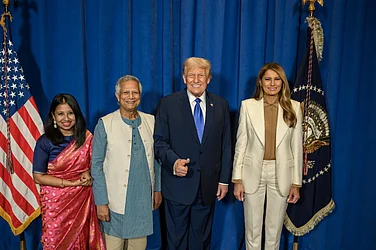Sunday's vote in France’s parliamentary snap elections left the country in chaos with voters splitting the legislature on the left, centre and far right. The result: a hung parliament leaving no faction even close to the majority needed to form a government. The early elections were a gamble by President Emmanuel Macron who thought it would give France a “moment of clarification” on the political situation. However, the results were not quite what he expected.
Rather than rallying behind Macron as he had hoped, millions took the vote as an opportunity to vent anger about inflation, crime, immigration and other grievances, including his style of government.
The results come less than three weeks before the start of the Paris Olympics when the country will be under an international spotlight. Many believe the deadlock raises the risk of paralysis for the European Union's second-largest economy.
What happened in French elections?
The snap election was announced last month, three years ahead of schedule, following the dissolution of parliament by President Macron. In the first round of voting held last Sunday, Marine Le Pen’s far-right National Rally (RN) and allies appeared at a clear advantage. If this had continued, it would have been France’s first far-right government since World War II. However, come second round of voting, the situation changed.
Over the week, there was a lot of political bargaining between the left and centre in which more than 200 candidates withdrew their applications to stop their votes from splitting and thwart RN from gaining power. The agreement was largely successful.
On Sunday, in the second round of voting, the leftist coalition New Popular Front (NFP) won 182 seats, securing first place. Macron's centrist alliance Ensemble, which was doing poorly in the first round, managed 163 seats, while the far-right RN alliance were restricted to third place with 142 seats.
Does this mean NFP won the elections? Not exactly. The majority mark for France’s 577-seat National Assembly is 289 and all three blocs fell short of the mark. It resulted in a case of hung parliament for the first time since 1988.
What’s next?
Since this is an unknown territory for modern France, many people reacted with a mix of relief and apprehension. As per the constitution, a new dissolution cannot be carried out for a year now. So, to get out of the limbo, however, President Macron has a few different scenarios to consider.
As the NFP emerged as the largest bloc – though much short of majority – its leaders have pushed Macron to give them the first chance to form a government and propose a prime minister. The faction pledges to roll back many of Macron's headline reforms, embark on a costly program of public spending, and take a tougher line against Israel in light of the war on Gaza. As of now, however, they do not have a PM face.
If the NFP is appointed for government, France would enter a period called cohabitation – a situation where a president who has lost a governing majority in the Assembly is forced to name a prime minister from another party. Meanwhile, Macron has warned that the left's economic program of many tens of billions of euros in public spending, partly financed by taxes on wealth and hikes for high earners, could be ruinous for France, already criticised by EU watchdogs for its debt.
The second scenario is that Prime Minister Gabriel Attal heads a provisional government. This is what Macron appears to be leaning towards at present. Attal was named prime minister only seven months ago. After the shock results, he offered his resignation but Macron refused it, asking him to remain temporarily as the head of the government “to ensure the stability of the country ”after the chaotic polls left the government in limbo.
This is similar to 2022 legislative elections when he rejected then Prime Minister Elisabeth Borne’s resignation though he had failed to secure majority in the Parliament. For now, Attal will remain the prime minister for an indefinite period.
The third scenario is that of a grand coalition to form government but this seems far-fetched because unlike other countries in Europe, France doesn't have a tradition of lawmakers from rival political camps coming together to form a majority.
The fourth scenario, though a gamble, is that of a minority government. This was also the case for the past two governments under Borne and Attal because Macron’s centrists were able to secure only a relative majority of 246 seats out of 577. If the opposition groups are unable to join forces to overthrow the ruling power, a minority government is possible. Another scenario is through a “technocratic” government, which would involve Macron appointing ministers with no party affiliation to manage day-to-day matters. But this is usually a short-term solution.
What’s the future for France?
The electoral campaign in France was marred by racism and antisemitism, along with Russian disinformation campaigns, and more than 50 candidates reported being physically attacked – something highly unusual for France.
However, the results of the snap election, though uncertain, ensued celebration for the country’s left-wing supporters who gathered at Republic Square in central Paris hugging, lighting flares, playing drums and chanting “We’ve won!”. Meanwhile, for the far-right, although it was a disappointing outcome, they celebrated an improvement in the result compared to last elections.
Ultimately, the talks over who should form a new government and who should lead the foreign, interior and finance ministries among others, are expected to be extremely difficult and lengthy given that political parties negotiating a deal have diametrically opposing policies and contempt for one another. The political deadlock also could have far-ranging implications for Russia's full-scale invasion of Ukraine, global diplomacy and Europe's economic stability.
Still, at least one leader said the result was a relief. “In Paris enthusiasm, in Moscow disappointment, in Kyiv relief. Enough to be happy in Warsaw,” Polish Prime Minister Donald Tusk, a former European Council president, posted on X late Sunday.
Macron still has three years remaining on his presidential term. Once a popular leader and France’s youngest president, the 46-year-old has been facing the voters’ wrath lately over a number of issues. His decision to hold snap elections further added to his unpopularity.
If none of the scenarios work and the deadlock continues, the final option for Macron is to quit. However, experts believe his resignation is highly unlikely. At the time of dissolving the Assembly, he had also stressed that he would remain in office no matter what the result was.




























